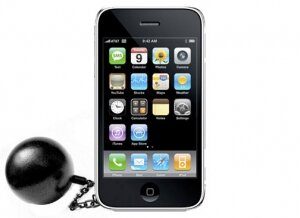The Information and Communication Technology landscape is always changing. That’s a given, but what we do with this change is up to us. The pace of innovation and impact of global technology trends, and mobility in particular, means that we operate in a vastly different space. Welcome to the world of mobile-driven, information-centric commerce!
It really does not matter what size your operation is. Start-ups, SMBs, SMEs and large enterprises are not immune to the impact of mobility in the workplace. It is a force to be reckoned with and involves one employee with a mobile phone right through to a complete migration of the networking infrastructure – and everything in-between.
The fact is that any credible venture today has to focus on mobility and data, the underbelly of a range of growing ICT and telecommunications trends.
These trends include social networking & social media, ubiquitous & disruptive technology, Big Data, the impact of BYOD (Bring Your Own Device) and cloud-based services, to name a few.
High growth volumes within the mobile space has opened the door to a range of devices and heightened the relevance of smartphones and tablet PCs.
It means that workers can interact and engage with the databases of businesses at any time. Information and systems are accessible from anywhere, anytime. Mobile storage devices and flash memory drives now have the capacity to facilitate the secure storage of high volumes of multi-media content from anywhere. We are now entering the terabyte phase of development.
It also means that the power to tap into resources, including the Internet, is truly only a click away. The growth of 3G and 4G LTE represent strategic opportunities to instil mature networks going forward.
We see the continued convergence of advanced apps within the mobile solution market. This is encouraging growth within the tablet PC market. Focused research & development and lower prices makes the advanced mobile solution market an attractive place to be for the consumer – irrespective of knowledge of technology
Social networks and social media are now very much a part of any credible corporate social strategy. These are genuine business-building tools that cannot be ignored. Websites like Facebook, Twitter, LinkedIn and Google+ are all used to expand the business frontier and engage automatically and instantly with a wider audience.
If there is any doubt about the strength and relevance of social media to business, consider that Facebook has a 900-million plus subscriber base and according to , the number of Facebook users in Africa in March 2011 was 27,414,240 and a year later, the figure stood at 40,205,580.
This represents penetration rates of 2,6% and 3,9% respectively. The forecast has been made that there will be 50 billion connected devices by 2020. Africa is very much a part of this growth. Countries like Nigeria are home to a high volume of mobile and Internet users.
The social revolution aside, there is little doubt about the impact of the cloud on business infrastructure. The public, private and/or hybrid cloud is becoming entrenched as a viable mechanism from which to control and manipulate infrastructure. It is particularly significant for companies that continue to look to reduce costs, minimise impact on resources and secure a return on investment. The days of businesses – specifically small businesses – having to invest heavily in ICT infrastructure to sustain growth and remain competitive are over.
Businesses are graded and differentiated based on the extent to which they are able to embrace these trends.
Today there is renewed appreciation for the ‘information’ in ICT. In a sense, businesses are going back to the basics and paying attention to data in a major way. Big Data is now the buzzword and it refers to the huge amounts of information that resides in cyberspace, otherwise known as unstructured data. The market is fast becoming more aware of the value of assimilating and analysing this data to engage with target audiences.
The bottom line for business is that there is no escaping the need to embrace mobility, take advantage of truly disruptive technology and the advent of virtual services in association with social media. This is the landscape before us – and it’s likely to be around for some time.

















